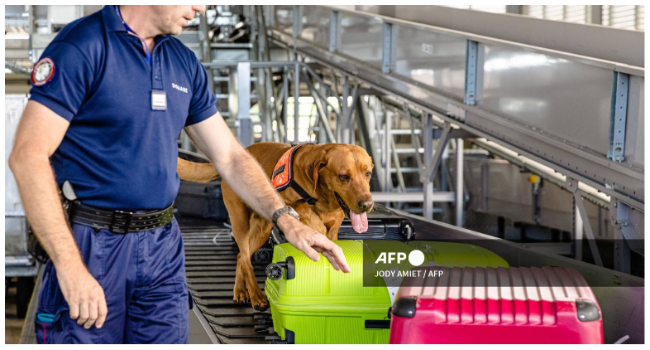The rate of lost, damaged or delayed luggage nearly doubled last year as air travel rebounded and the sector faced staff shortages following the Covid pandemic, a study found on Tuesday.
The report by SITA, an IT provider for the air transport industry, said 7.6 bags per 1,000 passengers were mishandled in 2022, up from 4.35 per 1,000 passengers the previous year.
The surge follows more than a decade of reduction in the rate of mishandled luggage, according to SITA.
In total, 26 million bags were mishandled last year, compared to 9.9 million in 2021, as the number of travellers neared pre-Covid levels, according to SITA.
“After a decade where the mishandling rate more than halved between 2007 and 2021, it is disheartening to see this rate climbing again,” said SITA chief executive David Lavorel.
“As an industry, we need to work hard to ensure passengers are once again confident to check in their bags,” he said.
Passenger air traffic soared to 3.42 billion last year, but airports and airlines had fewer staff to handle the surge after laying off thousands when the pandemic brought the sector to its knees.
Air traffic had reached 4.5 billion in 2019, with a baggage mishandling rate of 5.6 bags per 1,000 passengers.
The highest rate of mishandled bags in 2022 was in Europe, with 15.7 per 1,000 passengers, a threefold increase from the previous year.
This compared to 6.35 per 1,000 passengers in North America and three per 1,000 in Asia.
SITA used data from its luggage tracking software used by 500 customers at 2,800 airports globally for the study.


